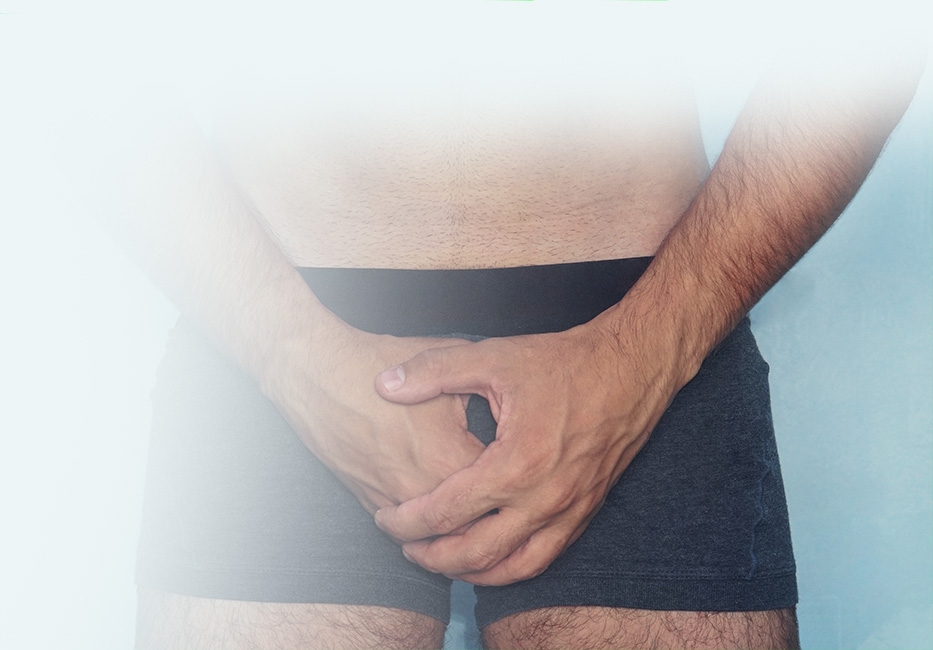- Home
- Men's Health
- Erectile Dysfunction Treatment
Erectile Dysfunction Treatment
Erectile dysfunction, also known as impotence and often referred to as ED, is a sexual dysfunction condition where a man can’t get and/or maintain an erection, be it due to physical, emotional or environmental factors (Lowy & Ramanathan, 2022). It’s a very common condition, particularly in older men (NHS Inform, 2023). According to Yafi et al (2016), it can be mild (where a man occasionally struggles to get and keep an erection) or complete (where a man is unable to get an erection at all).
Our range of Erectile Dysfunction treatments offer effective results, whether you opt for a well-known brand or a cost-effective generic.
More Information
What causes Erectile Dysfunction (ED)?
Erectile dysfunction (ED), or impotence, happens when a man struggles to get or keep an erection. It can be caused by physical, lifestyle, or emotional factors.
Common Physical Causes
- Health conditions:
- Injuries – to the penis or spinal cord
- Chronic illnesses – such as Parkinson’s (Parkinson's UK, 2024), multiple sclerosis (MS) (MS Society UK, 2024), kidney disease, or diabetes.
- Heart issues – high blood pressure, high cholesterol, or obesity (Maiorino et al, 2015)
- Medications: Some prescription drugs or treatments, like prostate cancer therapy, can cause ED. If symptoms appear after starting new medication, consult your doctor.
- Lifestyle factors: Smoking, drinking alcohol, and recreational drug use are linked to ED.
Hormonal Causes
Low testosterone levels or hormone imbalances can also lead to ED (Society for Endocrinology, 2021). If you suspect a hormone issue, talk to your healthcare provider.
Mental Health and Emotional Causes
Your mental well-being plays a big role in sexual health. ED can be triggered by:
- Depression (Liu et al, 2018)
- Stress and anxiety (Kalaitzidou et al, 2013; Velurajah et al, 2021)
- Low self-esteem or guilt
- Relationship problems
Working through emotional concerns, with or without professional help, can improve symptoms of ED.
Can erectile dysfunction be cured?
Yes, ED can often be treated or reversed. Up to 8 out of 10 men see improvements when using PDE5 medications (such as Viagra or Cialis). These treatments increase blood flow to help achieve and maintain a strong erection when aroused.
By addressing the root cause – whether physical, lifestyle, or emotional – many men regain confidence and control over their sexual health. Always speak to a healthcare professional to find the right treatment for you.
How can I treat erectile dysfunction (ED)?
How Can I Treat Erectile Dysfunction (ED)?
There are several proven ways to treat erectile dysfunction (ED), ranging from lifestyle changes to medication. Here’s a guide to help you understand your options.
1. Lifestyle Changes
Making healthy choices can improve ED:
- Exercise regularly
- Eat a balanced, healthy diet
- Reduce alcohol intake (Arackal & Benegal, 2007)
- Stop smoking
- Lose weight if you're overweight
- Manage stress and improve emotional well-being
Avoid herbal remedies or over-the-counter supplements, as they’re not proven to work and may be unsafe. Always consult your doctor first.
2. Erectile Dysfunction Exercises
Specific exercises like Kegels strengthen pelvic floor muscles and can improve blood flow to the penis, making erections easier to achieve and maintain.
3. Erectile Dysfunction Medications
Medications are often very effective. They work by increasing blood flow to the penis (Dhaliwal & Gupta, 2023). Some popular options include:
| Medication | Brand Names | Onset | Duration | Notes |
|---|---|---|---|---|
| Sildenafil | Viagra, Viagra Connect | 30 minutes | 4-6 hours | Most popular ED treatment, NHS’s first choice. |
| Tadalafil | Cialis, Cialis Daily, Cialis Together | 30 minutes | Up to 36 hours | Known as the 'weekend pill.' |
| Vardenafil | Levitra | 30 minutes | 4-6 hours | Better for men with eye concerns. |
| Avanafil | Spedra | 15 minutes | - | Fastest-acting ED tablet. |
| Alprostadil | Vitaros | 5-15 minutes | - | For those unable to use oral tablets. |
These medications are widely available and can be prescribed online through services like UK Meds, following an online consultation with a registered prescriber.
Which treatment is right for me?
Your doctor will help you choose the right treatment based on your health and personal needs. Medication, lifestyle changes, and exercises can often work together for the best results.
By making healthy choices and exploring proven treatments, most men can successfully manage and reverse ED.
What alternative erectile dysfunction treatment options are available?
If traditional erectile dysfunction (ED) tablets like Viagra (Sildenafil) or Cialis (Tadalafil) are not suitable, there are alternative treatments that can help improve erectile function. Always consult your doctor to find the best option for your needs.
1. Shockwave Therapy
Shockwave therapy is a newer, non-invasive treatment for ED. It uses low-intensity sound waves to help repair damaged blood vessels and stimulate new blood vessel and nerve growth in the penis. It may be particularly helpful for men recovering from prostate cancer surgery (Guy's and St Thomas' NHS Foundation Trust, 2022).
2. Erectile Dysfunction Cream (Alprostadil)
If ED tablets don’t work, creams like Alprostadil (brand name Vitaros) can be an alternative. This cream is applied directly to the penis to improve blood flow and help achieve an erection. It’s usually prescribed when oral medications, such as Sildenafil or Tadalafil, haven’t been effective (NHS Lancashire, 2015).
3. Vacuum Penis Pump
Vacuum erection devices (also known as vacuum pumps) offer a drug-free way to treat ED. The pump works by:
- Placing the penis inside a vacuum-sealed cylinder
- Removing air to draw blood into the penis and create an erection
- Using a constriction ring to maintain the erection (Cambridge University Hospitals (2022).
Vacuum pumps are simple, non-invasive, and a good alternative for many men.
4. Penile Implants
Penile implants are a surgical option for men with severe ED when other treatments have failed. This procedure involves placing an artificial implant inside the penis, allowing a man to achieve and maintain an erection for sexual intercourse. It’s usually considered a last resort treatment (Newcastle upon Tyne Hospitals NHS Foundation Trust, 2021).
Alternative ED treatments include shockwave therapy, ED creams, vacuum pumps, and penile implants. These options provide solutions when oral medications are unsuitable or ineffective. Always speak to your healthcare provider to ensure you receive the safest and most appropriate treatment for your condition.
What potential side effects can erectile dysfunction drugs have?
ED medications can have different side effects depending on the drug and the individual. Here’s a summary of the most common side effects for popular ED treatments:
| Medication | Potential Side Effects |
|---|---|
| Sildenafil (Viagra) | Headache, facial flushing, indigestion, nasal congestion, dizziness, blurred vision, rash, back pain, nausea. |
| Tadalafil (Cialis) | Headache, muscle aches, back pain, flushing, nasal congestion, dizziness, blurred vision, hearing loss, swelling in hands/feet, chest pain. |
| Vardenafil (Levitra) | Headache, flushing, indigestion, nasal congestion, dizziness, back pain, muscle pain, abnormal ejaculation, prolonged erections (priapism). |
- Side effects can vary: Not everyone will experience side effects, and the severity may differ.
- When to seek help: If you experience severe symptoms, such as chest pain, swelling, or prolonged erections (lasting over 4 hours), seek immediate medical attention.
- Consult your doctor: Your doctor can help you choose the most suitable ED medication and provide guidance on managing side effects.
If you’re concerned about any side effects, consult a healthcare professional as soon as possible.
Erectile Dysfunction FAQs
What erectile dysfunction tablets are available?
ED Pills
There are four main types of erectile dysfunction (ED) tablets, known as PDE5 inhibitors. These work by increasing blood flow to the penis, helping you achieve and maintain an erection:
Sildenafil
- Found in Viagra, Viagra Connect, and generic Sildenafil.
- Starts working in 30 minutes and lasts 4-6 hours.
- NHS's most commonly prescribed ED medication.
Tadalafil
- Found in Cialis, Cialis Daily, and generic Tadalafil.
- Known as the "weekend pill" because it lasts up to 36 hours.
- Cialis Daily is taken daily, so no need to plan ahead.
Vardenafil
- Found in Levitra and generic Vardenafil.
- Similar to Sildenafil but may be better for men with eye problems.
- Starts working in 30 minutes and lasts 4-6 hours.
Avanafil
- Found in Spedra.
- Fastest-acting ED tablet, working in as little as 15 minutes.
What’s the most effective ED tablet?
No single ED tablet is considered "strongest" or "most effective." The best choice varies for each person:
- Higher doses may work better but can increase side effects.
- Always follow your doctor’s advice and start with the standard dose.
Which ED tablet works the fastest?
- Spedra works in 15 minutes.
- Cialis Daily works continuously if taken daily, so you’re always ready.
Which ED tablet lasts the longest?
- Cialis works for up to 36 hours.
- Cialis Daily remains effective when taken daily.
Can I get ED treatments on the NHS?
Yes, generic Sildenafil is available on the NHS for ED. However, branded Viagra and other medications like Tadalafil are usually only available privately unless prescribed for specific conditions like pulmonary hypertension.
What about other ED treatment options?
- ED Cream: Alprostadil (Vitaros) is a cream option if tablets don’t work.
- Vacuum Pumps: Non-invasive devices that encourage blood flow.
- Shockwave Therapy: A newer treatment that repairs blood vessels in some cases.
- Penile Implants: A surgical solution for severe cases when other treatments fail.
Can ED signal other health problems?
Yes, ED can sometimes indicate underlying health conditions like high blood pressure (European Society of Cardiology, 2020) or heart disease (Harvard Medical School, 2020). If you experience frequent ED, consult your doctor for further checks.
Is ED linked to mental health?
ED can affect self-esteem and lead to stress, anxiety, or depression. Emotional or relationship issues may also contribute to ED (Elterman et al, 2021).
Is ED the same as premature ejaculation (PE)?
No, they are different:
- ED: Inability to get or maintain an erection.
- Premature Ejaculation (PE): Ejaculation happens sooner than desired during sexual activity.
If you’re experiencing ED, speak to your doctor to find the best treatment for your needs.
Sources:
- NHS - Erection Problems (Erectile Dysfunction)
- Mayo Clinic - Erectile Dysfunction
- National Institute of Diabetes and Digestive and Kidney Diseases - Erectile Dysfunction
- NHS Inform Scotland - Erectile Dysfunction (Impotence)
- Medical News Today - Erectile Dysfunction
- Clinical Knowledge Summaries - Erectile Dysfunction
- WebMD - Understanding Erectile Dysfunction Basics
- British Association of Urological Surgeons - Erectile Dysfunction (Impotence)
- Patient - Erectile Dysfunction (Impotence)
- British Heart Foundation - Erectile Dysfunction
- ScienceDirect - Erectile Dysfunction
- The Urology Foundation - Erectile Dysfunction
Learn more with UK Meds erectile dysfunction support resources:
Interested in finding out more about erectile dysfunction? The UK Meds Health Hub has a range of helpful content related to erectile dysfunction for you:
- What Causes Erectile Dysfunction
- UK Meds Hard Talk Erectile Dysfunction Campaign
- How Does Cialis Work
- Is Viagra, Cialis, or Levitra the Best
- Guide to Vitaros for Erectile Dysfunction: Exploring Alprostadil
- Cock Rings for Erectile Dysfunction: Everything You Should Know About Penis Rings
- Horny Goat Weed vs Viagra
- Can Losing Weight Treat Erectile Dysfunction
- How to Make Erectile Dysfunction Medication Work Better
- When Should I Take Viagra for the Best Results
- Foods Like Viagra That Give Erection
- What Does Cialis Do
- How Long Will Cialis Work
- What Is Alprostadil
- Taking Erectile Dysfunction Medication with Alcohol
- Does Masturbation Cause Erectile Dysfunction
Medication delivered the next day from UK pharmacies



Choose the right treatment
From the comfort of your own home or out on the go, choose the treatment you require from our extensive range.
Complete an online consultation
A vital part of our process, your online consultation will be similar questions to that of a GP. Quick and easy, we guarantee privacy and confidentiality.
Delivered discreetly
One of over 100 of our partner regulated UK pharmacies will dispense and ship the treatment to you in discreet packaging.
Rated out of 5 on 
My order arrived quickly and was well-packaged. Everything was exactly as described - a professional and efficient service.
The service from UK Meds was great and medication came quickly.
Although there were a few hiccups with the initial consultation as I had started using the injections from elsewhere first ever since that time I have had no problems disappearance have been great. Customer service has been perfect.
Communication from start of process to delivery updates brilliant
Rated 4.6 out of 5 based on 6442 reviews
Here to help you
Our Customer Service is available Monday to Friday 9am - 5pm. If you need urgent assistance, do not use this service. Call 111, or in an emergency call 999. Visit our help section


